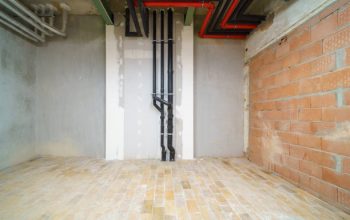Even though it is technically legal to purchase a home at the age of 18, doing so comes with a lot of responsibility and calls for careful consideration. There are loan companies that can assist with this, and they can lower the cost more than you might imagine. They do provide options for those with less-than-ideal credit histories as well as loans to those with little or no credit history.
Table of Contents
At What Age Can You Buy a House?
For home purchases, there is no set minimum age. Early in your 20s is a smart time to purchase a home if you’re prepared and have money for a down payment.
Start making plans now and get in touch with us to let us know what you need if you want to buy a house when you’re young. Additionally, we offer all first-time homebuyers a completely free educational course.
Benefits Of Buying A Home In Your 20s
Homeownership has many advantages, especially for younger people. You have more time for a home’s growth when you’re younger because it’s a long-term investment.
You might amass significant wealth if you stay in the new house for a long time.
- Sell the home at a profit later on
- Turn it into an income-earning rental property when you’re ready to move up
- Borrow against your home’s value at low-interest rates to generate cash
- During your retirement years
Furthermore, being a homeowner benefits those in their 20s because:
- Consistent, reliable payments — No more annual rent hikes from your landlord
- More control over personalizing the space—forget about accent walls. Paint, upgrade, renovate and do whatever you want to your home once you own it
- Great credit — Getting a mortgage loan at a young age can help you establish a solid credit history, which means a good credit score and ample financial opportunities later on
- Tax benefits — Homeownership comes with several potential tax benefits that might lower your tax burden and increase your annual refund
Additionally, you could spend less each month on housing. While average mortgage payments are frequently comparable to or lower than rent in many regions, rent has been skyrocketing in most major cities in recent years.
What To Know When Buying A House Young?
Buying A House Has Upfront Costs
Down payment and closing costs make up your upfront expenses. A three percent down payment is all that is required to purchase a home. Closing costs, which typically amount to about 2 percent of your loan balance, include things like your appraisal and loan origination fees.
Also, remember to factor in your moving expenses. Even if all the family and friends who help out get pizza and drinks.
If you have debts, such as student loans, you should think about how they will impact your monthly spending plan. If the Transforming Student Debt to Home Equity Act of 2022 is passed, aid for people with student loan debt may soon be available.
House Hunting Is A Process
Before you begin looking for a house, you should adjust your budget and find a reputable real estate agent. The most important thing is to get your mortgage pre-approved. If your pre-approval letter isn’t attached to your offer, home sellers won’t take it seriously.
Depending on the seller’s requirements and priorities, most purchases take 30 to 45 days. Although waiting can be difficult, your perseverance will be rewarded.
Minimum Requirements To Buy A House
When you meet the minimal criteria for a home loan, buying a home isn’t as difficult as many first-time buyers assume.
Remember that regardless of age, there are uniform home buying guidelines. Mortgage lenders will evaluate your income, savings, and credit on the same criteria whether you are 18 years old, 25 years old, or 55 years old.
These conditions do, however, differ depending on the loan program and the lender. So it often pays to check your eligibility with several different companies when applying for a home loan.
- Life stability. The psychological benefits of having a home of your own are enormous. You can establish roots and find stability by making an investment in a home.
- Programs for first-time home buyers. Grants and assistance programs are available in many localities for first-time homebuyers.
- Compounding savings. You can increase your equity as you pay off your loan. A house can be a wise investment, and if its value increases, you can use it as leverage to finance other purchases, debt consolidation through a refinance, or significant life expenses.
- Building credit. One of the best ways to improve your credit is to pay your mortgage on time.

What To Consider Before Buying A House In Your 20s
Be sure to take into account all the financial and other lifestyle repercussions before beginning the home-buying process.
Your Income
How much of your post-tax income could you afford to spend on housing, given your current income?
To estimate how much your mortgage will probably cost, use a mortgage calculator. As well as your regular monthly expenses like utilities, food, phone, car payment, and more, make sure you have enough money to pay for all of that.
Your Career
How long have you been in your position? What is your anticipated stay there? A move might be necessary if your job requires you to travel.
To at least cover your closing costs and achieve a break-even point on the property, you should remain in the house for a reasonable amount of time. Buying is typically only wise if you plan to keep the house for three to five years or more.
Your Future
Will you soon get married? Can you afford a home that will accommodate changes such as having children or pets?
Make sure a home purchase is compatible with your long-term objectives and plans for your life.
Your Local Market
What is the state of the housing market where you live? Are home values increasing? Are prices still within reach?
Your single-family home should serve as both a place to live and a wise investment.
A house that will increase in value over time and bring you profits is what you want to buy. Consult a neighborhood real estate agent for guidance if you’re unsure whether buying a home in your city is a wise investment.
Interest Rates
At what level are mortgage interest rates currently? Waiting for rates to decrease so that your monthly payment is more manageable would be preferable.
If you’re unsure about this one, consult a reputable loan officer. Also, make sure to shop around and compare rates. From lender to lender, they can differ greatly.
Your Time Commitment
The responsibility aspect is another. When compared to renting, owning a home necessitates a little more hands-on maintenance, and you are free of the landlord’s obligation to make repairs (or to pay the associated costs).
Before making a decision, be sure you’re prepared to handle all that comes with homeownership. To prepare for unforeseen expenses, it is a good idea to have an emergency fund.
Steps To Take Before Buying A House In Your 20s
It might be time to buy your first home if your objectives, the local market, and your finances all make sense.
1. Prepare Your Credit & Finances
Even if your income and expenses are in order, it’s still advisable to prepare your finances before beginning your home search or applying for a mortgage.
Work On Your Credit Score
Starting with the debts with the highest interest rates, pay off your debts. Make sure your accounts are in good standing and settle any collections you might have.
Additionally, you ought to obtain and review your credit report for any mistakes. To raise your score, report these to the credit bureau.
Avoid Expensive Cars
According to our mortgage calculator, a $500 car payment can significantly reduce your ability to purchase a home by more than $80,000. (Taking into account a down payment of 5%, a mortgage rate of 5%, and a $100,000 salary.)
The amount of money you have available each month may be significantly reduced if you have a large car payment, especially if you also have a mortgage to pay.
Cut Out Unnecessary Expenses
Before buying a home, you should have a healthy cushion in your savings account to cover unforeseen costs and provide the “cash reserves” mortgage lenders seek.
Plan to stop getting your morning coffee and cut costs wherever you can.
Be Prepared For Other Associated Costs
When you purchase a home, you will incur additional costs in addition to your mortgage and down payment.
Be sure to budget for costs such as moving expenses, new furniture, HOA dues, property taxes, and more. Be sure to leave room in your budget for these.
You’re managing student loans on top of your upcoming mortgage. Since they have an impact on your credit score, be sure you’re making those payments on time.
2. Minimize Your Down Payment And Closing Costs
You won’t need to put 20% down, but there are still significant upfront expenses associated with home purchases.
You’ll also need to pay closing costs, which, depending on the lender, can be anywhere from 2% to 5% of the total cost of the home you’re buying.
There are, thankfully, ways to reduce these upfront expenses or at the very least, make them more manageable.
- Choose a low-down payment loan — The amount of the down payment depends on the loan product. Although they have strict eligibility requirements, USDA and VA loans don’t require any down payment, while FHA loans have a 3.5% starting interest rate. 3% or more is needed for conventional loans. Keep in mind a lower down payment means more in monthly mortgage costs
- Apply for down payment assistance programs and grants — You can finance the down payment on your house with a variety of grants and loans. These programs vary by state and municipality, so check with your local housing authority to see what options you might have for your home purchase
- Look into closing cost assistance — Additionally, there are programs that can help with closing costs, or you can ask the seller of your property if they’ll cover some of your fees. If the house needs work or has sold relatively slowly, this is typical. Talk to your agent to see if this might be an option for your purchase
In order to cover these upfront expenses, you can also get creative. While other young homebuyers are looking for donations in lieu of wedding gifts, some are using crowdfunding to raise money for their down payments and closing costs.
3. Find The Right Home
Choosing a home requires figuring out what kind of payment you can make.
Determine a reasonable price range for your home using a mortgage calculator, and then make sure that there is still enough cash flow to pay for your other monthly expenses, including any unforeseen ones.
Start your search once you have a clear idea of your price range. You should:
- Set up notifications on the top listing websites, such as Realtor.com, Trulia, and Zillow. Add filters for the size, age, and features of the house, so you get the most appropriate listing alerts possible
- Think about working with a real estate agent. Make sure they’re familiar with the area you want to buy in
- When viewing homes, make a list of “must-haves” and “nice-to-haves.” Bring this list with you on every show, so you can compare apples to apples
- For any home you are thinking about purchasing, take a drive around the neighborhood. Get to know the area, talk to neighbors, and see what local amenities there are
When a home you like is listed, you’ll need to act quickly if the local real estate market is particularly pricey or competitive. In order to get the seller’s attention, make it a point to visit the property within a couple of days and be ready to provide a respectable earnest money deposit.
You might be able to convince a seller to accept your offer over that of another bidder if you include a personalized note with your offer letter.
4. Get Your Mortgage Lined Up
Finding the ideal lender is the first step in beginning the mortgage process. There are countless possible options, including large banks and other financial institutions, fintech companies, credit unions, and more.
Usually, the advertised rates of a lender are not the rates you will receive. So make sure to get a rate quote and breakdown of fees from each lender you consider
Always keep an eye out for reviews as well. The customer experience varies greatly from one lender to the next.
- Get pre-approved — A brief application and some information on your income and credit are typically required for this. Following approval, the lender will issue you a “pre-approval letter” containing the precise loan amount for which you have been pre-approved. You can include this letter in any offers you make to increase the seller’s confidence
- Complete your full mortgage application and lock in your rate — You must complete the entire mortgage application and submit all the necessary financial documentation to your lender after you make an offer on a home and the seller accepts it. Discuss rate locking with your loan officer. Most lenders offer rate locks of 30 days or more, meaning your interest rate can’t go up in that time period while your loan is being processed and underwritten
- Communicate with your loan officer often — Keep in touch with your loan officer because they are in charge of overseeing the approval of your mortgage loan. When they ask questions or demand more documents, make sure to get back to them quickly. Any delays on your end will delay your closing date
- Get the home inspected — You should hire a qualified home inspector to inspect the property for any flaws, safety concerns, or necessary repairs before you close on the house. If issues do crop up on the inspection, you can ask the seller to address these before closing or have them pay part of your closing costs to make up for the necessary repairs
- Find a home insurance policy — Before you can close on the house, you’ll also need homeowner’s insurance. Make sure to compare shop for the best deal here, just as you would with your lender. You might also need flood insurance, depending on where the home is located.
No matter your age, your individual financial situation, and the state of the housing market should be used to determine whether you are ready to start the home-buying process. Although 18 is the legal minimum age, other factors frequently determine whether you are prepared. You must have stable finances, a reliable source of income, and assurance that you’ll remain in the neighborhood after purchasing the home.



